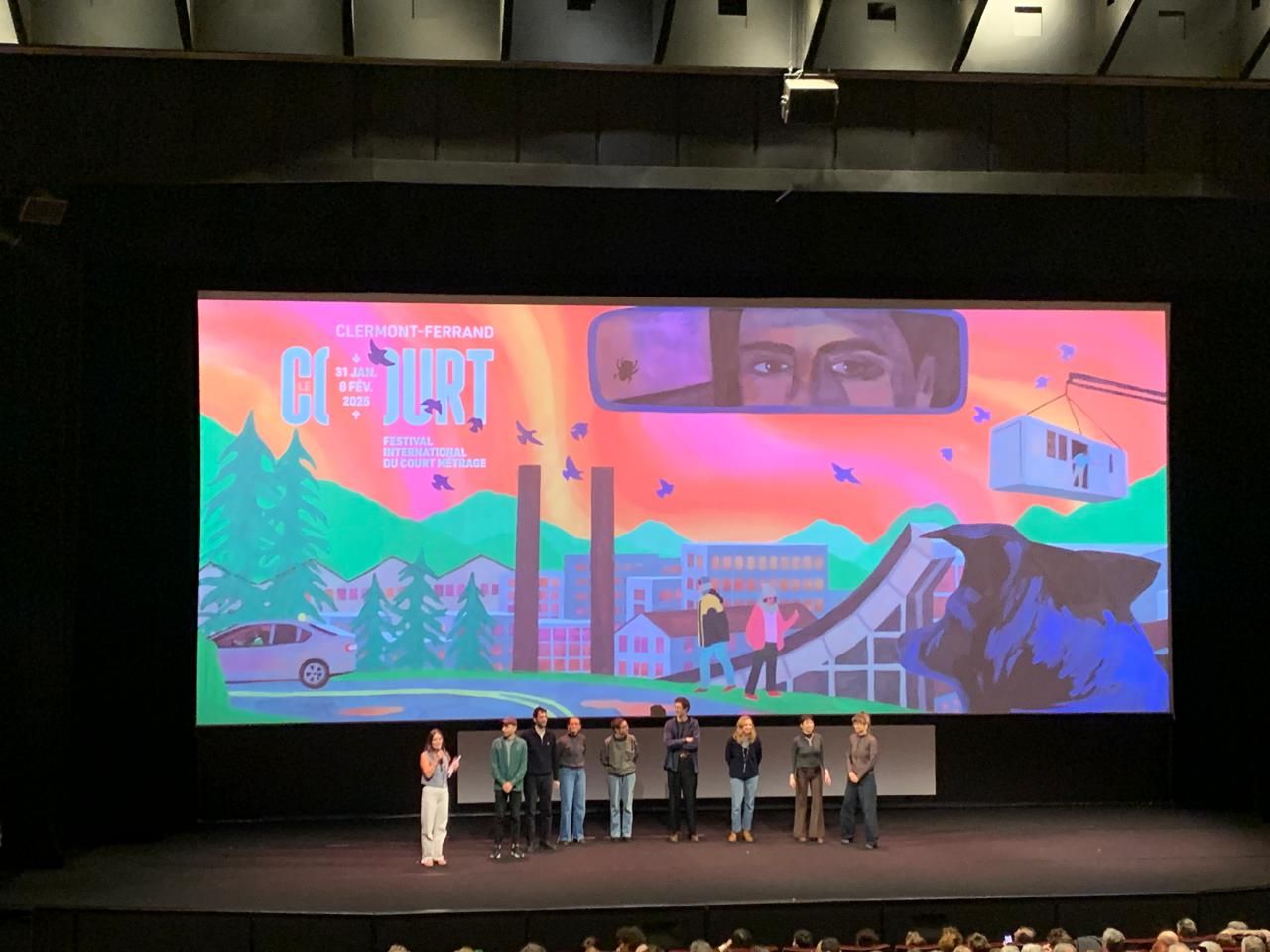
Lebanon has taken center stage since last weekend at the 47th edition of the Clermont-Ferrand International Short Film Festival, thanks to a collaboration with the Beirut Film Society. This initiative showcases a rich program celebrating Lebanese culture in France through cinema, art and music. This is Beirut met with the Beirut Film Society team, representing Lebanon at the event.
The 47th edition of the festival, inaugurated on Friday, January 31, at the Maison de la Culture in Clermont-Ferrand, puts the spotlight on Lebanon. During the opening ceremony, two Lebanese short films, Warsha by Dania Bdeir and Waves ’98 by Ely Dagher, were screened among other selections. The festival’s “Focus Lebanon” segment offers a diverse and substantial lineup, co-organized by the Beirut Film Society, who traveled from Lebanon to take part in this event. This collaboration aims to provide the audience with a unique perspective on Lebanese cinema and its many facets.
This is Beirut spoke with the Beirut Film Society team, who also host a stand at the Clermont-Ferrand Short Film Market, providing Lebanese filmmakers with a valuable platform to showcase their work.
Focus Lebanon: The Program
Nicolas Khabbaz, programmer and artistic director of the Beirut Short Film Festival, programming director of the Batroun Mediterranean Film Festival, and member of the Beirut Film Society, is one of the key architects behind this program. In an interview with This is Beirut, he detailed the lineup, consisting of six sessions of short films spanning over 20 years of Lebanese cinematic creation.
These sessions include retrospectives, recent films and innovative series, such as Letters. Audiences will also have the opportunity to attend roundtable discussions and Focus Lebanon masterclasses, such as The New Wave of Lebanese Cinema: Creation and Commitment, Documenting and Archiving War, and a masterclass by Wissam Charaf. Visitors can enjoy the Maabar podcast, an exhibition by Lebanese photographer Lara Tabet, and the Anatomy of Labo 17 exhibition featuring Lebanese visual artist Brahim Samaha, who designed the Lebanon Retrospective poster. A concert by Nâr (Nadine Daou, also a jury member for the official Labo competition) will further blend music and cinema.
Among the highlights, three films are competing in the official selection, representing the avant-garde of Lebanese cinema. The results will be announced during the closing ceremony on Saturday, February 8, at Salle Jean Cocteau. Competing films include:
What If They Bomb Here Tonight? by Samir Syriani in the International Films category,
Ship of Fools by Alia Haju in the Labo Films category,
Le Diable et la Bicyclette by Sharon Hakim in the French Films category.
Beirut Film Society and the Importance of Collaboration
Sam Lahoud, the President of the Beirut Film Society, emphasized in a brief interview with This is Beirut the significance of this collaboration with the Clermont-Ferrand International Short Film Festival and the Focus Lebanon program. He highlighted that the festival serves as a vital platform for Lebanese cinema, offering global exposure. Lahoud noted that this initiative is about celebrating Lebanon’s cultural and artistic diversity, far from the reductive narratives of war and violence. The program portrays Lebanon as a vibrant place of life, embodied by its culinary traditions, wine, arak and, of course, cinema. This is an opportunity to give Lebanon a voice and remind the world that its culture symbolizes resilience and resistance.
Contextualizing Lebanese Cinema
Sam Lahoud also participated in the roundtable discussion, The New Wave of Lebanese Cinema: Creation and Commitment, which placed this program in context. Alongside Lahoud, notable figures such as Noel Keserwany, Manon Nammour and Josef Khallouf shared their insights, with the discussion moderated by Sarah Hajjar, the President of the Lebanese Film Festival in France. The conversation delved into the challenges and evolution of Lebanese cinema, particularly among the younger generation of filmmakers.
A central theme emerged during the exchanges: the identity of Lebanese cinema. For Lahoud, Lebanese cinema doesn’t adhere to a fixed identity; instead, it lies in the urgency to document and tell Lebanon’s true story. Manon Nammour echoed this view, highlighting recurring themes of collective memory and identity, deeply resonating with Lebanon’s current challenges. The discussion also addressed censorship, underscoring the difficulties faced by Lebanese filmmakers in a politically and socially complex environment.
This collaboration between the Beirut Film Society and the Clermont-Ferrand festival reveals a deeply moving and ever-evolving Lebanese cinema at the heart of a globally significant film festival.




Comments